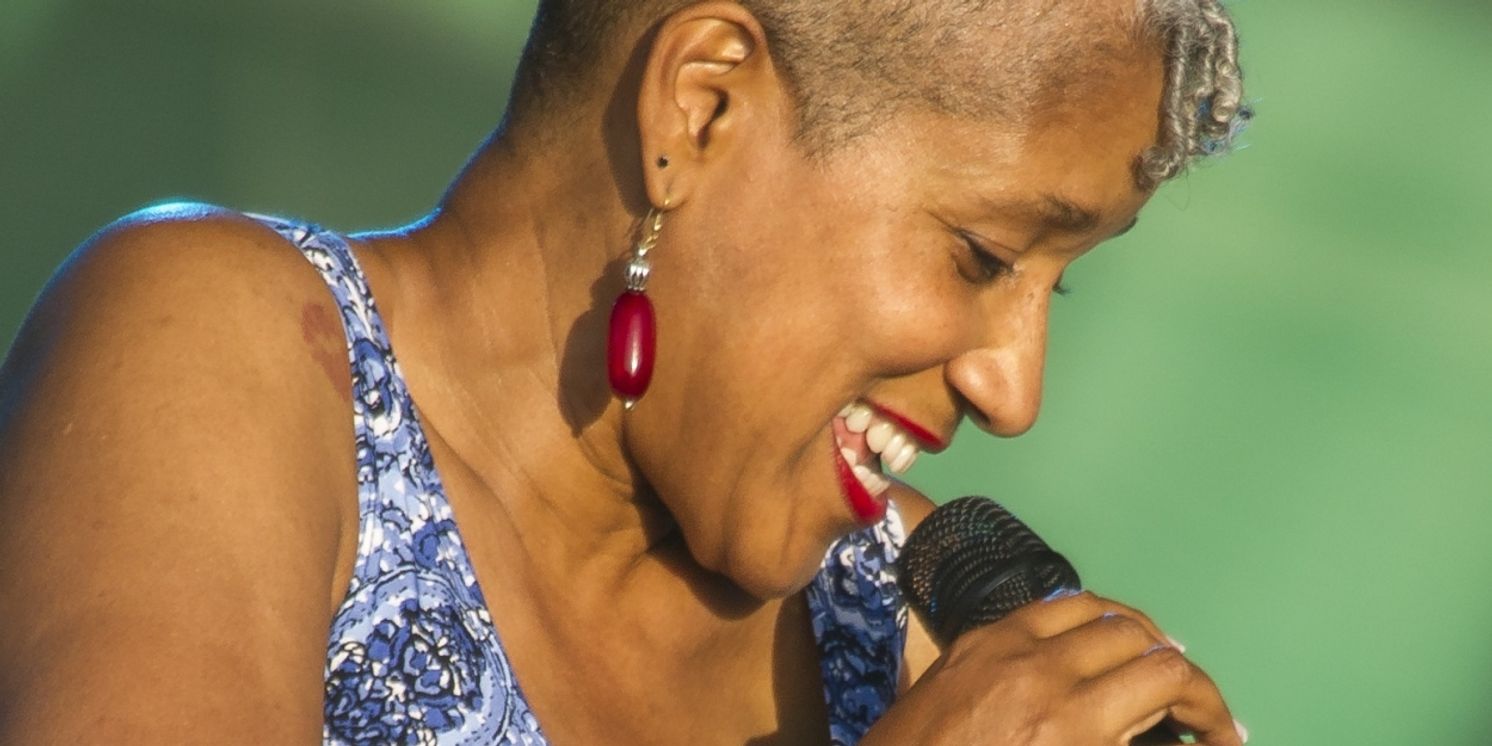Review: René Marie Jumps Into Belafonte's Calypso Beats at Jazz at Lincoln Center
Memories and music were ignited at the 10/25 JUMP IN THE LINE!

If you go to a show that is announced to be a tribute to Harry Belafonte, who died last year at the age of 96, you could make a pretty good guess that there’d be at least some calypso songs he was identified with, especially with the concert being named after one of those very rhythmic numbers that brought him fame early in his career: “Jump in the Line!” The program booklets indeed had a calypso-heavy set list. Therefore, if you looked at this beforehand, you knew your pretty good guess was pretty accurate. The page stated: “Repertoire to be selected from the following…” and there were just nine titles, so another more-than-pretty-good guess was that there’d be some lengthy renditions or a lot of talk. Well, we got all nine at the 7 pm set (and the talk wasn’t all that expansive, nor was there a barrage of Belafonte bio bits for the uninitiated). The songwriter credit for one familiar title puzzled me as I saw the name of that giant of American popular song standards, some from Broadway and Hollywood scores – Irving Berlin. But the name beside “Jamaica Farewell” somehow got mixed up with that of the correct one, with the same first name and same-sounding first syllable of the surname. That would be Irving Burgie, who also went by the name Lord Burgess, who co-wrote or adapted numerous pieces popularized by Belafonte. The two men had met in 1950.
René Marie, a formidable presence, was definitely INTO the genre, as if born to the breed, taking on the style and sound, swaying and sashaying smilingly to the flow and feel, the percolating beats, in step with the grooves of her six-piece band and the original arrangements by its trumpeter/percussionist Etienne Charles who sang and spoke here and there.
Grooving, sounding great, and gleeful on the playful, upbeat stuff, René Marie was a gracious spirit. The dynamic singer mentioned that she remembered hearing the included pieces on records at home and loving them when she was a very young child. I had the same experience, at the same point in life, as my parents were both Belafonte fans and frequently played the albums with these numbers. (Sources say that his album simply called Calypso was the first vinyl disc to sell a million units in its first year of release.) I was glad to hear them so emphatically embraced by a worthy kindred spirit. The torch has been passed. In the audience were Harry Belafonte’s son, David, and other kinfolk.
The feel-good material, with ingratiating and memorable melodies and words washed over us like tropical waves. We got the signature numbers “Day-O” (also known as “The Banana Boat Song”) and the winking “Man Smart, Woman Smarter” during which we were invited to chime in by singing along each time that last word of the title came up, and to do so with the proper accent (“smah-tah”). The lively “island” setting and atmosphere had been established rightly and right away with the opener, “Cocoanut Woman” co-written by Belafonte and Burgie. Both were born in New York City, but had parents with Caribbean roots (Burgie’s mother, and both Belafonte parents; Harry lived in Jamaica for several years in his childhood). A little of this similar Caribbean-inflected content goes a long way, and there was more than a little, with possibly too little variety for some, especially with the blithe simpler tunes getting such lengthy instrumental breaks and a song’s short lyric being repeated a lot. However, the musicians were certainly energized and excellent, with some engaging solos and infectious playing.
More recent generations were likely introduced to a few of these likeable songs via their use in Beetlejuice (the film and the stage musical that followed). There was some welcome respite from the prominent similar musical fabric with two folk songs, telling the tale of hammer-toting worker “John Henry” – bluesy and muscular — and the poignant and gentle “Danny Boy.” The singer spoke from the heart – and from shuffled papers she consulted, resulting in pauses which only slightly slowed things down.
My companion and I were disappointed that the celebration didn’t cast its net wider to give a fuller picture of singer/actor/producer/civil rights activist Harry Belafonte’s career and discography. All nine songs were first recorded on studio and live albums that were released between 1954 and 1961, even though Belafonte had so many other recordings throughout the decades, with his last one coming out in 1997. And they included standards, pop, then-contemporary folk, socially-conscious fare, and a full album of material from the score of Porgy and Bess (one of two sets shared with Lena Horne). Since René Marie has also been notably eclectic in her choice of repertoire in her own career, recording since 1999, she seems like a good candidate to think outside the box called calypso/folk if she chooses to do a follow-up show. But this snapshot of the first few years of a legend could be an introduction to either singer, although the audience reaction indicated that most attentive attendees were not new to either talent. I look forward to following René Marie’s musical itinerary.
Learn more about René Marie on her website at www.ReneMarie.com
Learn more about Jazz at Lincoln Center including their calendar at www.jazz.org
Reader Reviews
Videos

